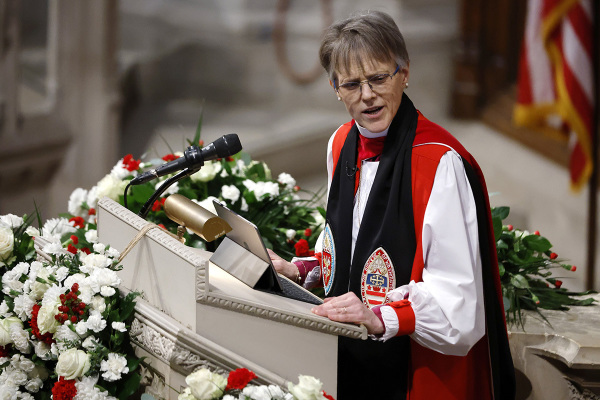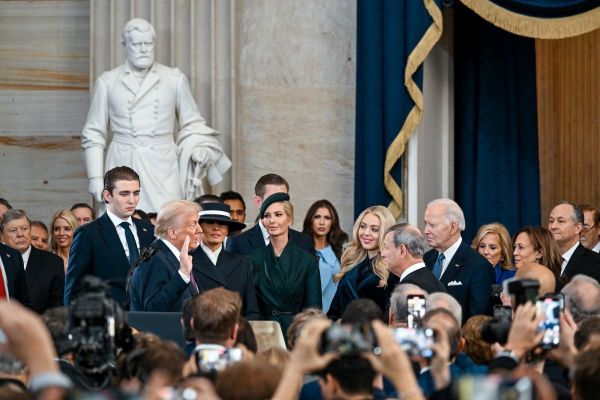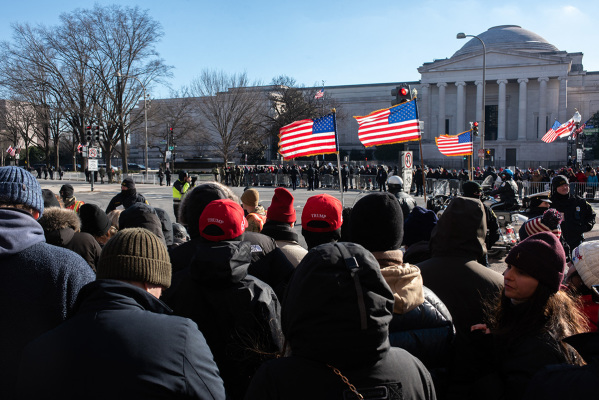Evangelicals Wrongly Accused of Not Defending Religious Liberty
The National Association of Evangelicals, the Council for Christian Colleges and Universities and evangelical publications were criticized for being silent on the lack of conscience protections in new health care regulations and federal grants in an article on the First Things “On the Square” blog.
Contrary to what the article states, NAE and CCCU did submit comments on, and strongly opposed, the lack of adequate religious conscience protections in the proposed regulations, and evangelical publications have brought attention to the issue.
In the article, Robert Schwarzwalder, senior vice president at the Family Research Council and Julia Kiewit, associate editor at the Marriage And Religion Research Institute, wrote, “We applaud the efforts of America’s Catholic leadership in defense of religious liberty. But we do so with a certain measure of consternation. As Evangelical Protestants, we wonder: Why is organized Evangelicalism so silent? Where is the National Association of Evangelicals? Where is the (Evangelical) Council for Christian Colleges and Universities? Where are the editorials and feature articles in Evangelical publications?”
At issue are regulations proposed by Health and Human Services Secretary Kathleen Sebelius that would require health care providers to provide contraception if they receive government funds under the new health care law. There is a religious exemption, but the exemption is so narrow that no Catholic hospital would qualify. Also, a Catholic Church program to help the victims of human trafficking was recently denied funding by HHS because it does not provide referrals for abortions.
“Evangelicals may have missed this opportunity,” Schwarzwalder and Kiewit wrote, because the period for submitting comments to HHS have expired.
The NAE and CCCU did, however, submit comments to HHS on the issue. Copies of those comments were provided to The Christian Post by both organizations.
“We believe it is detrimental to faith-based organizations, the services they deliver, and the people they serve if government decides to protect the religious freedom only of organizations that fit the narrow criteria set out in the amended regulations,” NAE Vice President of Government Relations Galen Carey wrote to HHS.
Paul R. Corts, president of CCCU, similarly wrote, “We are fundamentally opposed to the idea that the government can mandate something so at odds with the religious beliefs of many without granting adequate religious and conscience protections mandated by the Constitution.”
In an interview with The Christian Post, Carey said he believes the authors were “uniformed about what we've done.” Besides the comments provided to HHS, Carey said the NAE has spoken to members of Congress and President Obama about freedom of conscience protections.
While evangelicals do not share all the views of the Catholic Church on contraceptive use, Carey said it is important to support Catholics on the issue because freedom of conscience “is an important principle.”
In addition to filing comments with HHS, CCCU issued a press release, and informed its member colleges and universities about the issue. The member institutions were encouraged to file comments with HHS as well, which many of them did, according to Shapri LoMaglio, Government Relations and Executive Programs director for CCCU, in a Monday interview with The Christian Post.
NAE and CCCU were also both signatories to a letter, organized by the Institutional Religious Freedom Alliance, sent to Joshua DuBois, head of the White House Office of Faith-Based and Neighborhood Partnerships. The letter, signed by more than 40 religious leaders, asked DuBois to advocate for conscious protections on behalf of religious employers.
Family Research Council and the Marriage and Religion Research Institute, the organizations that Schwarzwalder and Kiewit work for, were not represented in the letter.
Schwarzwalder and Kiewit also criticized evangelical publications for not adequately reporting on the issues related conscience protections in the health care law and HHS grants.
“These leaders and organizations appear to be so embarrassed by what they regard as the excesses of political activism that they have become mute. But it’s time they spoke out,” Schwarzwalder and Kiewit wrote.
Baptist Press, Christianity Today, World magazine and The Christian Post have each, however, covered those stories with multiple articles.
It may be that Schwarzwalder and Kiewit would like to see a more robust and vocal outcry than what they have seen so far, but to say that these organizations have not spoken out is not true.





















